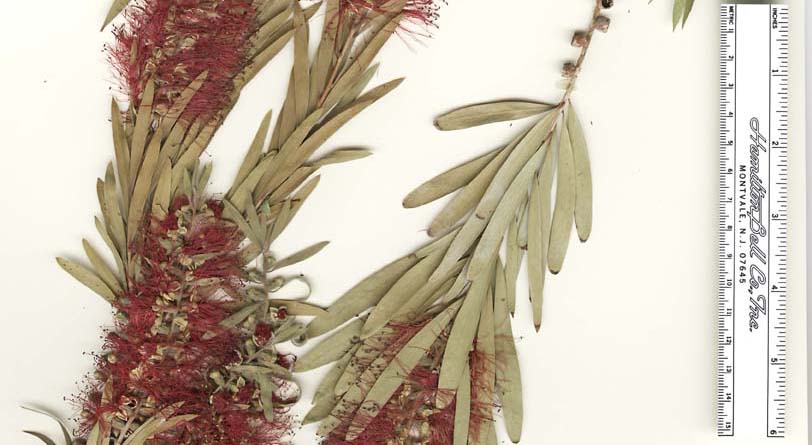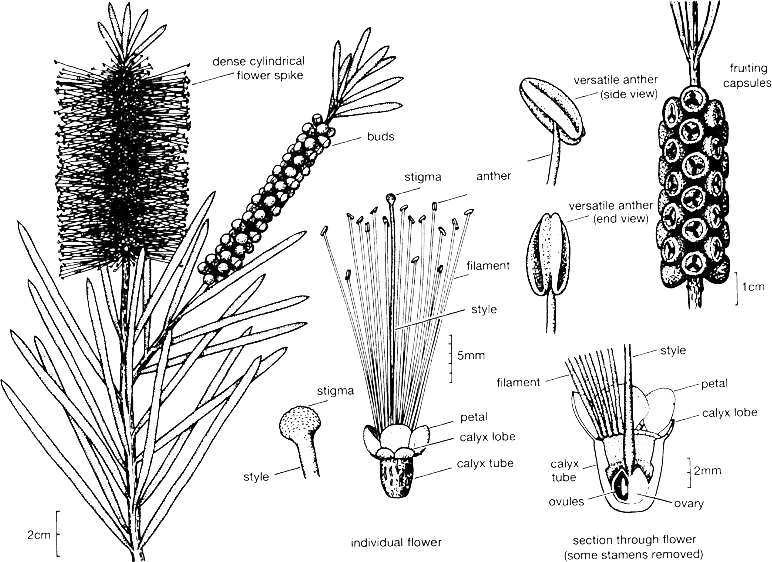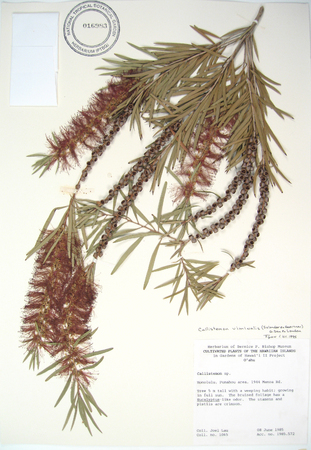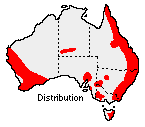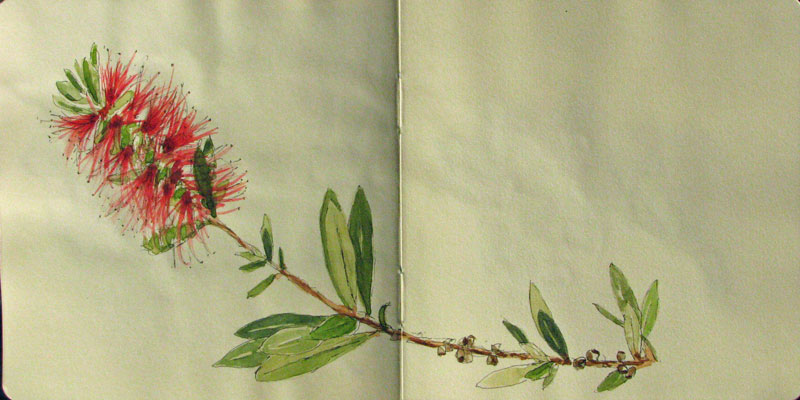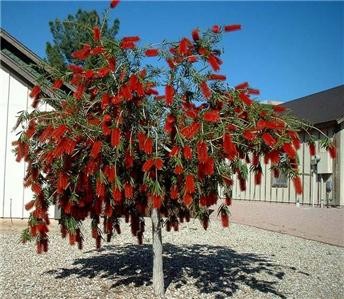
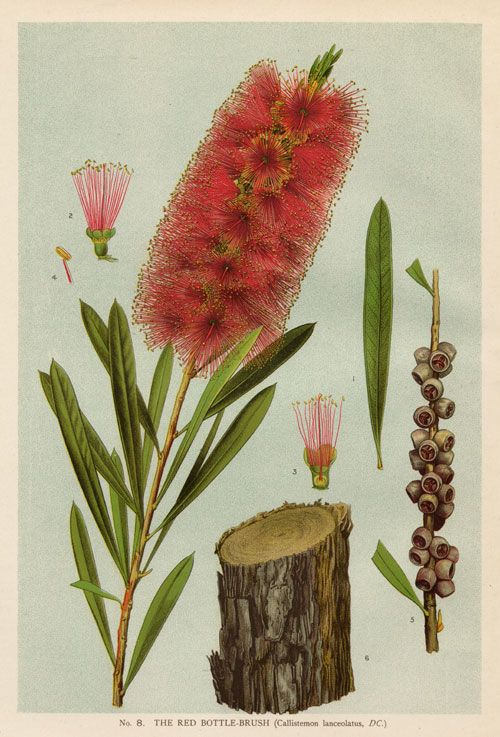
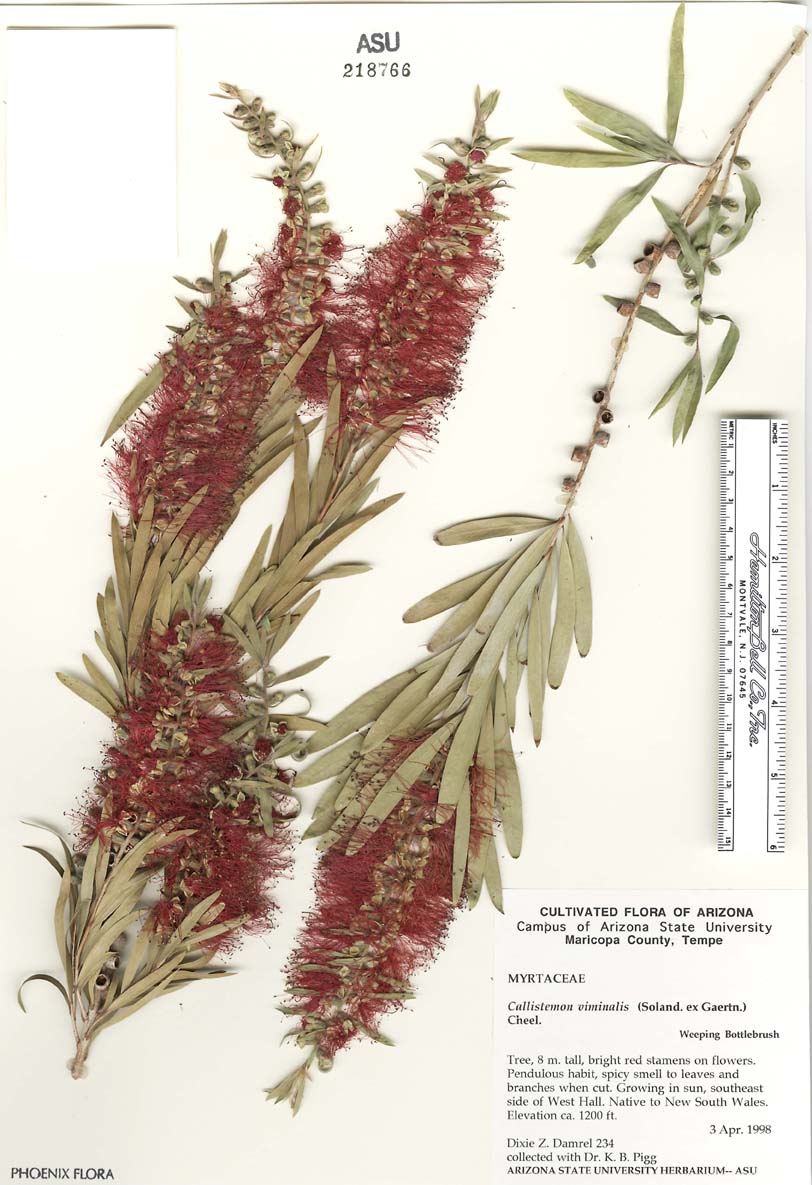
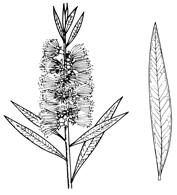
Callistemon Viminalis
the weeping Bottlebrush
Callistemon viminalis (Myrtaceae)
Common Name:Weeping Bottlebrush
Classification: Callistemon R. Br.
Kingdom: Plantae-Plants
Subkingdom: Tracheobionta-Vascular plants
Superdivision: Spermatophyta-Seed plants
Division: Magnoliophyta-Flowering plants
Class: Magnoliopsida-Dicotyledons
Subclass: Rosidae
Order: Myrtales
Family: Myrtaceae-Myrtle family
Genus: Callistemon R. Br. – Bottlebrush
Species: Callistemon viminalis – Weeping Bottlebrush
(National Plant Database. 2004.)
Include all the information you can gather around your selected plant. Describe it in detail.
The leaves of Callistemon viminalis are 3-6 mm wide by 40-70 mm long but northern forms have a more elliptical-shaped leaf.
The flowers are borne in spikes 40-150 mm long with prominent red stamens 15-25 mm long. Petals are greenish or pale coloured, tiny, inconspicuous and in some cases deciduous. Peak flowering time is late spring and it is common for the species to flower in spring and autumn or bear small numbers of flowers all year. Fruits are 5-6 mm in diameter and the seed is held for a few seasons. New growth emerges from the ends of the inflorescence and the young leaves have bronze-coloured hairs.
Weeping Bottlebrush tree is native to New South Wales, Australia. It is a common landscape item in South Florida and is also popular in Southern California.
Callistemon viminalis is probably the most widely cultivated of all bottlebrushes, being extremely adaptable
in cultivation. The species and its cultivars are widely planted in Australia and overseas.
Callistemon name comes from the Greek kalos meaning beautiful and stemon, stamens. Viminalis comes from Latin, meaning with long, flexible twigs.
Aboriginal Uses
• Flowers are sucked for their nectar
• Flowers can also be made into a sweet drink when soaked in water
http://ntbg.org/about/
Draw a diagram – explaining and observing details of your specimen. If you do not have access to flowers or seeds draw what you have.
Press and present a speciment of your plant on an A4 sheet of good quality water colour- try and include as much detail as possible. First press your plant – Make your herbarium sheet only once it is pressed and dried. Include as much detail as you can find.
Describe location and Habitat, Discuss where the specimen is from and its preferred location, soil and climate
Most Bottlebrushes occur in the east and south-east of Australia. Two species occur in the south-west of Western Australia and four species in New Caledonia. Bottlebrushes can be found growing from Australia’s tropical north to the temperate south. They often grow in damp or wet conditions such as along creek beds or in areas which are prone to floods.
Does it have a common name that refers to something else? How and why does it have that name?
Eg Weeping Willow, Paperbark etc., Red Gum, Holy Basil,etc.
Try to create a botanical illustration of your speciment. Explore Pen & Ink, watercolour, pencil etc.
Explore if at all the plant inspres artists and writers. Is it part of a mythology? Is it referred to in stories or legends. Has it been immortalised in art? Is it a metaphor in language or culture. Explre any cultural (modern/traditional) practices around it.
Bottlebrush Tree
Side by side, for a decade at least,
in every season I look and see you,
encouraging garden growth,
asparagus ferns, pink miniature roses
.
Pale green, slender leaves
fluttering in the breeze,
diamond crystal drops
dangling from each
.
After rain, blue jays visit,
dappled light on your limbs;
how amazing it is when green buds
give birth to crimson blossoms.
.
That’s when I sit on the porch beneath,
lean my head back and gaze upwards
at the remarkable contrast of red tufts
on sparkling blue sky.
.
Focal point; icon of beauty,
shelter, endurance, recovery
after stormy injury;.
with roots vast and strong
.
Fence that seemed to support, long gone,
but still you hold your own;
shade from thee blesses souls
inside this humble home.
.
© Olivia L., 6 years ago

